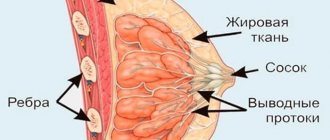Discomfort in the lower abdomen during menstruation is a common condition for women during this period. Most often, the lower abdomen pulls a week before menstruation and in the first days. This is due to an increase in the presence of the hormone estrogen and an intense release of prostaglandins and histamines into the blood.
But sometimes the stomach feels tight a week before the start of menstruation for other reasons (inflammation of the appendages, uterus, diseases of the intestinal tract). It is important to distinguish in which cases unpleasant sensations are the norm, and when they signal the development of diseases.
Physiological causes of pain
The nature and duration of discharge, how many days before menstruation the stomach hurts - all this depends on the hormonal background of the female body. The levels of estrogen and progesterone determine the functioning of the reproductive system and the menstrual cycle in particular.
The stomach may hurt in healthy women for some physiological reasons:
- Low pain threshold. High sensitivity to any discomfort explains why your stomach hurts a week before your period. Uterine contractions lead to irritation of nerve receptors, causing cramping sensations in the lower abdomen.
- Swelling. Approximately 3-6 days before the start of menstruation, the production of hormones by the pituitary gland leads to fluid retention in the body. Swelling occurs not only externally, mainly on the face and lower extremities, but also on the internal organs. As a result, the stomach stretches; pain can also occur in the lower back or side.
- Reaction to the intrauterine device. When wearing this product a week before your period, your lower abdomen hurts. Its presence enhances uterine contractions, which become more distinct. Pain a week before your period can also occur with regular use of certain oral contraceptives.
- Lack of endorphin. For this reason, your back or stomach often hurts before your period. The level of this hormone, which is a painkiller, falls in the second half of the cycle, resulting in an increase in the pain threshold in women.
- Physical overload. 3-4 days before the critical days, discomfort in the lower abdomen can be observed due to heavy lifting, excessive exercise, or emotional stress. In this case, the aching is not inside the abdominal cavity - the muscles hurt.
Unpleasant sensations caused by physiological reasons are short-lived. If the lower abdomen feels tight for 5 days, and the intensity of the discomfort does not decrease, there is a risk of developing infectious and inflammatory pathologies. They are also indicated by the color of the discharge, which differs significantly from normal menstrual blood - normally, menstrual blood should not be dark or black, but have a normal liquid consistency without any impurities or inclusions.
Why does your stomach hurt a week before your period and when is this normal?
Often, women have stomach pain a week before their period, and many of them would like to know what these pains mean.
Is it possible to consider the appearance of such symptoms as a gynecological pathology, or to accept them as an inevitable natural state and not pay attention to them? Pain in the lower abdomen before menstruation significantly reduces a woman’s quality of life, distracting her from work and everyday responsibilities. To alleviate the condition, you need to know about existing ways to eliminate these painful manifestations.
Why does my stomach hurt during menstruation?
The pain is usually caused by muscle contractions of the uterus, causing muscle spasms in the lower abdomen. In gynecology, a similar condition with painful menstruation is called algodismenorrhea or dysmenorrhea.
During contractile movements, the uterus is cleared of unnecessary endometrial particles, which are expelled along with the blood.
Pain receptors located around the internal genital organs in women have different sensitivity and react differently to any contraction.
Painful periods are the result of a hormonal imbalance, in which an increase in estrogen levels causes heavy, prolonged bleeding.
Disturbances in hormonal levels between sex hormones and prostaglandins also cause pain.
Prostaglandins play a decisive role in the appearance of discomfort during menstruation; the greater their number, the stronger the contraction of the uterus and the more noticeable the pain becomes.
Pain in the lower abdomen 7-10 days before menstruation
Very often, 10 days before your period, pain appears in the lower abdomen. The most common causes of this condition are as follows:
- Premenstrual syndrome . This cause of pain, PMS, is considered one of the most common. This condition is accompanied, in addition to pain, by bloating, intestinal discomfort, increased excitability and unreasonable aggressiveness. Signs of apathy, loss of strength, and fatigue appear.
- Decreased progesterone production . Symptoms of this disorder are the appearance of aching pain in the lower abdomen.
- Decreased endorphin levels . It is characterized by irritability, an unbalanced psycho-emotional state, and can manifest itself in swelling of the mammary glands or a disorder in the gastrointestinal tract.
- Development of inflammation . The result of ongoing infections or hypothermia can be acute pain and cramping.
- Processes associated with ovulation .
Causes of pain a week before menstruation
If the follicle is damaged, minor bleeding may occur due to rupture of small vessels. Often the blood loss is so minimal that it goes unnoticed.
Major bleeding with blood entering the abdominal cavity occurs when a large blood vessel ruptures. In these cases, a life-threatening condition may arise, and only immediate medical assistance can save the situation.
The examination will determine whether the situation that has arisen is threatening, or whether the cause of the malaise is the approach of menstruation.
Why does my stomach hurt like I'm on my period?
It also requires attention that menstruation ends, but the pain in the abdomen remains. The main cause of this condition is usually inflammatory diseases.
Moreover, causing painful menstruation, after it ends, painful symptoms can continue for a long time.
In order to find out the reasons causing the discomfort, it will be necessary to conduct a thorough examination of the body, only based on the results of which a correct diagnosis can be made.
The most common causes of abdominal pain similar to menstruation are the following:
- adnexitis;
- cervicitis;
- vulvitis
Lower back pain and nausea: is this normal?
Today, no one will be surprised by pain in the back and lumbar region. Most people have known this feeling almost from their youth, and endure similar symptoms until old age.
However, it happens that such a condition is not associated with a diseased spine, but serves as concomitant signs of various pathologies in the internal organs. For example, pain in the lower back and abdomen, nausea may indicate abnormalities in the development of pregnancy or inflammation in the pelvis.
Particular attention should be paid if nausea and lower back pain occur with pressure surges and high fever.
A week before your period, your stomach hurts and is swollen
The reasons why bloating may occur a few days before your period, as well as pain in the lower abdomen, are different.
One of them is poor intestinal motility, which occurs due to changes in the blood supply as the body prepares for the upcoming menstruation.
Increased blood flow affects not only the genitals, but also the intestines, causing increased gas formation. Bloating can occur due to the growth of the endometrium in the uterus, which becomes thicker, causing the abdominal muscles to react.
Fluid retention, which begins a week before menstruation, becomes one of the causes of bloating in the abdomen, thereby the body stores fluid before the upcoming loss of blood.
Bloating can be observed during ovulation, as well as during pregnancy, when similar symptoms accompany a delay in menstruation. If nausea or changes in the mammary glands occur, it is necessary to conduct a pregnancy test.
The appearance of swelling, bloating, and pain in the lower abdomen may be signs of fibroids or other neoplasms.
Abdominal pain and delayed menstruation
At the first sign of this condition accompanying a delay in menstruation, it is necessary to check for pregnancy, as symptoms such as these often indicate it.
To do this, you need to use a pregnancy test, which today can be easily purchased at any pharmacy.
There should be no particular cause for concern at this stage, since the condition before the onset of menstruation is always accompanied by some painful sensations.
Could there be a pregnancy?
To confirm these assumptions, you can do a test during the first week, and then be sure to consult a gynecologist. A visit to the doctor will protect a woman from a pathological pregnancy, since ideally the beginning of pregnancy should not cause any discomfort other than nausea.
What to do if the test shows a negative result
The anxiety caused may be justified if pain in the lower abdomen accompanies a delay in menstruation, and the test result is negative. In this case, you need to see a doctor and undergo an examination.
Tests and an ultrasound may be necessary, but only an accurate diagnosis can completely protect against further development of the inflammatory process.
Also of concern are the symptoms that may accompany this condition, such as the appearance of an unpleasant odor, unusual discharge, or difficulty urinating.
What to do if brown discharge appears within 7 days
Such changes in the color of the discharge may indicate implantation has occurred, which occurs 7 days before menstruation.
Some pathologies, for example, cervical erosion, also contribute to a change in the color of the discharge.
When brownish discharge is detected after menstruation and lasts no more than three days, this is considered normal. If this continues for more than 7 days, you should visit a doctor.
Abdominal pain and bleeding
Bloody discharge and abdominal pain are often signs of diseases of the internal organs. This may be due to the following factors:
- use of hormonal contraceptives;
- development of ectopic pregnancy;
- the occurrence of uterine bleeding;
- inflammation in the cervical canal;
- hormonal changes;
- premenopause.
Uterine bleeding can occur due to fibroids, endometritis, various erosions and cervical cancer. May be a symptom of adenomyosis or inflammation in the appendages. Hormonal contraceptives can cause abdominal pain accompanied by bleeding, but this goes away within the first 2-3 months.
When to see a doctor
In some cases, situations arise when it is necessary to obtain answers to emerging questions. You should consult a doctor if bloody discharge appears before each period, as well as if it is profuse and has a strong unpleasant odor.
A change in the color of the discharge, a previously unusual consistency in the form of foam or curdled milk, should also be a reason for a visit to specialists.
Cases when discharge occurs several times during one cycle and also continues for more than 7 days after menstruation also cause alarm.
Source:
A week before your period, your stomach hurts: normal or pathological?
Each woman of reproductive age has an individual menstrual cycle, it depends on the condition of the reproductive system organs. If your stomach hurts a week before your period, the cause may be hormonal imbalance, inflammatory diseases of the genitourinary system, or premenstrual syndrome.
Causes of pain syndrome
The following pathologies can cause aching pain in the lower abdomen before menstruation:
- hormonal imbalance;
- menopause;
- PMS – premenstrual syndrome;
- ovulation;
- postoperative adhesions;
- inflammatory diseases of the pelvic organs.
If you experience discomfort that has not been observed before, you should immediately consult a doctor. This may be a symptom of a serious illness.
Ovulation
The ovulation process usually occurs 2 weeks before the start of menstruation, but deviations are often observed. When the egg matures in the follicle, it ruptures, and the cell begins to move along the fallopian tubes to the uterus.
This process may be accompanied by minor pain on the left or right side of the lower abdomen and the appearance of scanty dark brown or black bleeding. The intensity of pain depends on the degree of bleeding and the individual characteristics of the body. Symptoms persist for up to 2 days.
This condition is not a pathology and therefore does not require any treatment. On the contrary, the normal functioning of the reproductive system is confirmed. If the pain persists for more than 2 days, heavy bleeding appears, or body temperature rises, you should consult a gynecologist.
You can alleviate the condition with the help of painkillers. These days you should reduce physical activity and rest more.
Premenstrual syndrome
If your lower abdomen hurts a week before your period, the cause may be premenstrual syndrome. This is a complex of symptoms, including psycho-emotional, vascular, and endocrine disorders. The woman’s mood changes and her general well-being worsens.
Signs of PMS usually appear 2-10 days before the start of your period. The cause of the pathology has not been fully studied, but it is believed that the provoking factors are previous abortions, gynecological operations, childbirth, stress, and infectious diseases of the reproductive organs.
Signs of premenstrual syndrome:
- headache radiating to the eyes;
- increased irritability, aggressiveness, depression;
- swelling of the face, limbs, swelling of the mammary glands;
- increased sweating, numbness of fingers;
- cardiopalmus;
- aching pain in the lower abdomen;
- increased body temperature;
- nausea, vomiting.
PMS symptoms stop with the onset of menstruation or persist for several days after it ends. The clinical picture may worsen as menopause approaches.
Treatment of PMS is aimed at normalizing hormonal levels, the nervous system, and eliminating concomitant diseases.
Therapy is carried out in courses and can take about a year. The main method is to take hormonal, sedatives, herbal medicines, and vitamins. Additionally, non-traditional methods of treatment are prescribed: acupuncture, homeopathy, reflexology. Women are recommended to lead a healthy lifestyle, adhere to proper nutrition, and undergo health-improving procedures.
Hormonal imbalance
Hormonal imbalance can also be the reason why women experience severe stomach pain due to menstruation. Progesterone is a hormone of the corpus luteum of the ovaries, which helps the fertilized egg to attach to the wall of the uterus, prevents the organ from contracting and is responsible for its growth during pregnancy.
Normally, progesterone levels should increase on the 15th day of the menstrual cycle, when the egg leaves the follicle, which means that the girl is ready to bear a child. If there is a hormone deficiency, the uterus continues to contract, and the embryo cannot attach to its walls, a miscarriage occurs.
Symptoms of insufficient progesterone production:
- swelling of the mammary glands;
- bloating;
- heavy intermenstrual bleeding;
- aching pain in the lower abdomen before menstruation;
- menstruation is more abundant;
- cycle disorders;
- swelling of the face;
- mood swings.
Source: https://rdbkomi.ru/zabolevaniya/po-kakoj-prichine-za-nedelyu-do-mesyachnyh-bolit-zhivot-i-kogda-eto-norma.html
Pathological causes
Pain in the lower abdomen a week before menstruation and during menstruation may have pathological causes due to an infectious or inflammatory process. These include:
- Algomenorrhea. It is believed that up to 70% of women suffer from this disease. This condition is caused by strong contraction of the uterus due to the fact that sex hormones are produced in excess. In addition to pain, other ailments often occur - dizziness, diarrhea, vomiting, headache, lightheadedness.
- PMS. If the lower abdomen drags for a long time until menstruation (a week or more), the psycho-emotional background is unstable, the woman feels hot flashes, frequent mood swings, sweating, dizziness, this indicates the presence of premenstrual syndrome. The condition is caused by a decrease in the synthesis of progesterone and estrogen approximately 2 weeks before the onset of critical days.
- Intestinal diseases. Often nagging or sharp pains in the lower abdomen are not associated with inflammation or infection of the female genital organs. They can be caused by gastroduodenitis, gastritis, ulcers.
- Pathological structure of the uterus, underdevelopment of the organ. In this case, the outflow of the separated endometrium is impaired, and blood stagnation and accompanying pain are possible.
Abnormal location of the uterus: bend
Other causes include ectopic pregnancy, hormonal imbalance, recent childbirth or abortion, and trauma. Also, unpleasant sensations may accompany the release of the egg. In this case, after ovulation, there is a pulling in the groin, which is normal.
Pain syndrome in the case of serious pathologies does not appear on its own. If other ailments arise, it is necessary to consider in detail what symptoms accompany the discomfort.
If a rise in temperature, chills, increased bleeding, or a shift in cycle are observed, it is necessary to find the cause of this condition.
Signs of approaching period
The onset of menstruation varies from woman to woman. One of them is a condition when the lower abdomen pulls before menstruation 10 days or more. In addition, there are other signs of approaching critical days:
- in about 7 days, inflammation and acne on the face may occur due to hormonal imbalance;
- pain before menstruation is often accompanied by nausea, changes in taste preferences, and impaired sense of smell;
- Every month, 10 days before the onset of menstruation, appetite may increase, which is also due to hormonal changes;
- aching sensations appear in the chest, soft tissues swell, there is pain in the mammary gland before menstruation and it increases slightly. Pain in the abdomen, lower back, and swelling of the mammary glands can also be caused by hormonal changes in the body;
- discomfort appears in the abdomen - flatulence, diarrhea or constipation;
- mood swings and insomnia are observed.
This whole symptom complex speaks of premenstrual syndrome. It usually develops 8-9 days before the start of your period.
Depending on the form of the pathology, a woman may experience aggression, anxiety, depression, swelling, bloating, excessive irritability, headaches, surges in blood pressure and even panic attacks.
Along with this, against the background of PMS, the stomach begins to ache before menstruation; unpleasant sensations can also be localized in the lower back, legs, heart and sternum.
It is with an increase in the concentration of female hormones that a peculiar condition is observed - nausea, sometimes just before the onset of menstruation there may be a feeling of pregnancy with the characteristic occurrence of breast sensitivity, morning vomiting, changes in the taste of food, and an aversion to certain odors.
Painkillers
Pain in the lower abdomen can be eliminated using special massage techniques, physiotherapeutic procedures, warm baths and local application of heat. But modern painkillers will be more effective.
Medications
The list of the most popular and effective medications that can cope with painful sensations during menstruation includes:
- Paracetamol;
- Aspirin;
- Piroxicam;
- Ibuprofen;
- Ketoprofen;
- Naproxen.
In addition to painkillers, antispasmodics are widely used, which relax smooth muscles and reduce pain intensity:
- Drotaverine;
- Papaverine;
- Buscopan;
- No-shpa.
For intense pain, simultaneous use of antispasmodics and anti-inflammatory non-steroidal drugs is recommended. This allows you to eliminate discomfort and stop the spasm that caused it. It is not recommended to use medications for more than 3 days in a row.
Folk remedies
Without the help of painkillers, in the presence of intense or mild pain, you can alleviate the condition using proven folk remedies:
- chamomile strengthens the immune system and has a slight sedative effect, and the essential oil of the plant is considered a natural analgesic;
- raspberries regulate the cycle, relieve pain;
- lemon balm also has a mild sedative effect and is prescribed for insomnia, anxiety, and irritability;
- elecampane root stabilizes hormonal levels and eliminates painful discomfort during algomenorrhea;
- Horsetail has an anti-inflammatory, mild diuretic and strengthening effect, and is used in the presence of severe pain during menstrual periods.
Long-term unpleasant sensations that recur monthly with each menstruation, the appearance of discharge between menstruation, cycle disruption, increasing pain or bleeding are symptoms that require immediate consultation with a doctor.
In what cases is it necessary to consult a gynecologist?
If changes occur in the body for the first time that have not been observed before, this is a reason to consult a doctor:
if the pain lasts more than 7 days;
with heavy bleeding accompanying pain;
at the same time the temperature rises;
several menstruation with short breaks within one month;
painlessness of menstruation in the past;
suspicion of pregnancy;
fainting before or after PMS.
Such pain can be a manifestation of:
hidden infection in the genital organs;
serious illness.










